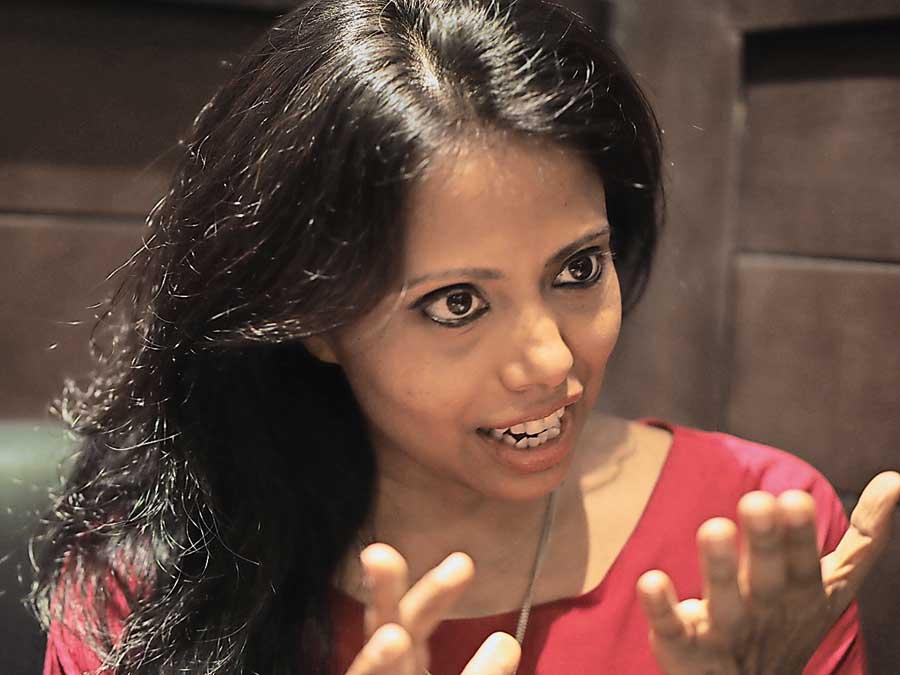
Speaking at a conference on "contingency plan for riot and hostage situations in prisons" Sri Lanka's Defence Secretary, Kamal Gunaratne, claimed that if prison officials should be fired if they failed to display "professional dignity" in their conduct".
The statement follows State Minister, Lohan Ratwatte's storming of Anuradhapura prison and forcing 8 Tamil prisoners, detained under the Prevention of Terrorism Act, to kneel before him at gunpoint. When questioned on the incident by Sri Lanka's Human Rights Commission, prison officers denied seeing the incident raising concerns that they had let the Minister roam the prisons unaccompanied.
It also follows a damning report by Human Rights Watch which has highlighted how Sri Lanka's police have abused their powers under the guise of pandemic prevention. Amongst the abuses listed are police brutality, arbitrary detentions, and extrajudicial killings whilst under police custody.
Last November, following protes by prisoners in the Mahara prison, over the rapid spread of COVID-19, prison officers opened fire killing 8 inmates and injuring 52.
Criticism over EU funding

Responding to the workshop human rights activists have highlighted their concerns over the increasing military influence over Sri Lanka's prisons and the record of Gunaratne who stands accused of a litany of war crimes.The workshop was organised by United Nations Office on Drugs and Crime (UNODC) funded by the European Union organized the workshop.
Commenting on the workshop, Sri Lanka's former human rights commissioner, Ambika Satkunanathan, highlighted the "extralegal powers" that the Minister of Defence was seemingly exercising over the department of prisons. This she noted was indicative of deepening militarisation which has been attempted to address Sri Lanka's "dysfuntional prison system" but has "entrenched existing dysfunctaionalities, inequalities and enabled violations".
In her twitter thread she details how joint raids were conducted by Sri Lanka's notorious Special Task Force (STF) and prison officer. This allowed for the excessive use of force by the STF which were "founded on a violent and militaristic ethos".
8/ In June 2020 joint raids were reported to have been conducted by STF & prison officers. Allowing entities such as military/STF to conduct raids can lead to excessive use of force & unrest as STF/military are trained in diff techniques & founded on violent & militaristic ethos.
— Ambika Satkunanathan (@ambikasat) October 1, 2021
The STF have a record of serious human rights allegations including the murder of five Tamil students in Trincomalee in January 2006; the Welikada prison attack of November 2012; and of participation in anti-Muslim riots in 2018.
She further added:
10/In the context of broader militarization, donors & international community need to do due diligence when supporting programmes that claim to undertake reform to ensure they don’t entrench existing dysfunctionalities, inequalities & enable violations. @UNSriLanka @UNODC
— Ambika Satkunanathan (@ambikasat) October 1, 2021
Kamal Gunaratne's record
What is @UNODC doing inviting Kamal Gunaratne, credibly accused of mass atrocity crimes, to deliver training?
— Sri Lanka Campaign (@SLcampaign) October 1, 2021
All parts of the UN must stop legitimising individuals credibly accused of horrific crimes.@UNSriLanka @EU_in_Sri_Lanka https://t.co/0mDYxx6LnP
Serious concers were also raised over Gunaratne's record having led Sri Lanka's notorious 53rd division during the final phases of the armed conflict. Gunaratne is accused of overseeing the bombing of "civilian hospitals and food distribution point" as well as the operating of a torture camp.
In the UN High Commissioner's report in February she details her concerns over his record, as well as army commander Shavendra Silva, and notes that as a consequence the UN decided to "suspend all Sri Lanka’s Army peacekeeping deployments, except where they would expose United Nations operations to serious operational risk".
Read more here.
